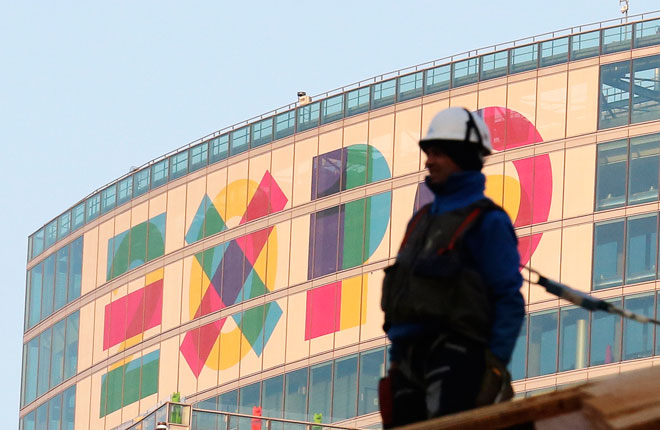The universal expositions of the 21st century are theme based appointments that accelerate meetings, exchanges and the discovery of shared interests.
Expo Milano 2015 is the largest international event to be organized in Italy in recent years. “Feed the Planet, Energy for Life” is the theme, and this expo, which runs from 1 May to 31 October, hopes to present a new blueprint for universal expositions.
In addition to the construction of the pavilions, Expo Milano hopes to be remembered for its intangible legacy summed up in the Charter of Milan, an exercise in global citizenship. The event will also provide an opportunity for the international community to assess and collaborate on global challenges such as how to guarantee high quality, healthy, sufficient and sustainable nutrition for all of humanity, alongside an innovative educational and informative experience.
At the Expo Milano, the Italian Development Cooperation will be promoting over 30 events related to sustainability, food security and nutrition, the battle against waste and the important role played by women in development. All issues that have a bearing on Italy’s contribution to the negotiations for the Post-2015 Development Agenda to be adopted by the United Nations in September.
The Feeding Knowledge initiative, created for Expo Milano 2015 to promote good practices in food security and sustainable development, has reasserted the quality of the Italian Development Cooperation system. Out of a total 786 projects from all over the world, 12 of the 18 projects awarded prizes by the international jury involved Italian partners: institutions, NGOs, companies, universities and research centres. Five of these projects saw the direct involvement of the Italian Ministry of Foreign Affairs and International Cooperation (MAECI). Further proof of Italy’s capacity to come up with innovative solutions and practices and to set up partnerships capable of facing up to major development challenges.
The Expo 2015 will also share the positive experiences of initiatives such as Café y Caffè, a regional support network for Central American small coffee producers who are selling quality coffee to Italian companies for export purposes, a fitting example of how development cooperation can be mutually beneficial. The Africa Milk Project in Tanzania is another example of a joint project, co-financed by the Italian Development Cooperation and involving NGOs, businesses and institutions.
The commercial aspects of the universal exposition are receiving increasing attention. The Expo Milano 2015, with the approval of the Bureau International des Expositions, provides a showcase to promote relations between economic and commercial operators.
In December 2014, the Italian Foreign Ministry launched programmes and events under the banner Expo delle Imprese. The event promotes the economic and commercial side of the universal exposition alongside its more scientific and educational aspects.
The main goals of Expo delle Imprese are to support collaboration between Italian and foreign economic operators and to showcase Italian excellence in food production. The food and beverage sector is the second largest manufacturing sector in Italy, generating 8.7% of GDP and accounting for over €26 billion in exports. In this challenging economic climate, the sector has nevertheless stood its ground, thanks to the high quality of its produce and its close ties with its territorial domains, guaranteed by the 55 agro-industrial districts dotted around the country.
A few figures on the current and potential impact of the Expo 2015 on the Italian economy. The investments by participants for the construction, preparation and management of the site and the pavilions will total €1 billion. Partnerships with private operators, which will include some of Italy’s most high profile companies, will account for a further €370 million.
The Expo Milano 2015 will have notable knock-on effects on the economy and employment. According to a report by SDA Bocconi, by 2020 the event will have generated €10 billion in additional production, of which €4.3 billion in added value from the tourist sector. Some 20 million visitors are expected, 12 to 14 million Italians and 7 to 8 million foreign visitors.
Many initiatives have been launched to get the business world to play its part. Promotional road shows have been touring in Italy and abroad, while the Milan Chamber of Commerce has created an IT platform for business matching. The Italian Foreign Trade Agency (ICE), the network of chambers of commerce and the ministries will all play a crucial role in the promotion of the initiative.
On the Expo Milano site, the Italian pavilion will provide assistance, meeting rooms and venues in addition to a schedule of events promoted by the regional administrations and other local authorities, as well as Confindustria.
Expo Milano represents a fundamental pillar for the recovery of the Italian national system, acting as a powerful stimulus for growth by attracting investment and boosting the influx of tourists, all objectives outlined in the Agenda Italia 2015, the master plan for all projects promoted by the Italian government to maximise the positive economic repercussions of the universal exposition.
The universal expositions of the 21st century are theme based appointments that accelerate meetings, exchanges and the discovery of shared interests.
Expo Milano 2015 is the largest international event to be organized in Italy in recent years. “Feed the Planet, Energy for Life” is the theme, and this expo, which runs from 1 May to 31 October, hopes to present a new blueprint for universal expositions.




